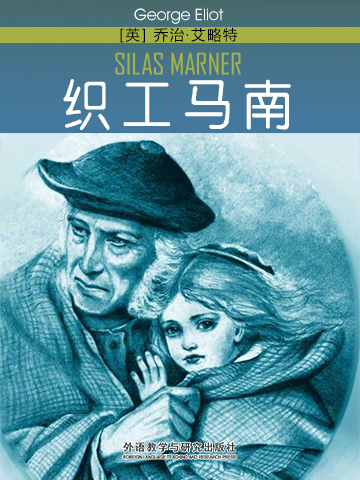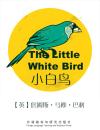Silas Marner: The Weaver of Raveloe is the third novel by George Eliot, published in 1861. An outwardly simple tale of a linen weaver, it is notable for its strong realism and its sophisticated treatment of a variety of issues ranging from religion to industrialisation to community.
《织工马南》描述了马南一生的坎坷经历:塞拉斯·马南被好友诬陷偷了教堂的钱,愚昧的教区人们以抽签的形式断定马南有盗窃行为,未婚妻也信以为真,抛弃了他,满腹委屈和怨恨的他离开了自己的故乡,到了一个叫瑞维洛的村庄附近居住。原教区的经历使他开始怀疑自己的信仰,认为上帝对他很不公平,他不再进教堂,落入麻木的境地,成天只知不断织布,过着孤独、恨世的生活。他唯一的乐趣便是晚上取出他织布所积聚的金币来抚摩观看。十五年后的一天晚上,他的金币突然被盗,他唯一的乐趣被剥夺了,这使他第二次陷入绝境。就在他万念俱灰的时候,一个幼儿爱碧偶然闯入了他家,被他收养。爱碧的到来,给塞拉斯的生活增添了很多乐趣,他开始与人交往,不再逃避生活,后来他的银子失而复得,他开始意识到上帝并没有抛弃他,爱碧实际上是上帝送给他的礼物,从此他的信仰更加坚定。《织工马南》与宗教关系密切,其中多个人物都能在圣经中找到人物原型。
Although the shortest of George Eliot’s novels, Silas Marner is one of her most admired and loved works. It tells the sad story of the unjustly exiled Silas Marner—a handloom linen weaver of Raveloe in the agricultural heartland of England—and how he is restored to life by the unlikely means of the orphan child Eppie. Silas Marner is a tender and moving tale of sin and repentance set in a vanished rural world and holds the reader’s attention until the last page as Eppie’s bonds of affection for Silas are put to the test.
- PART ONE
- PART TWO
- CONCLUSION.
- 书评 写书评
- 笔记
-
书评加载中...














 京公网安备 11010802032529号
京公网安备 11010802032529号
笔记加载中...